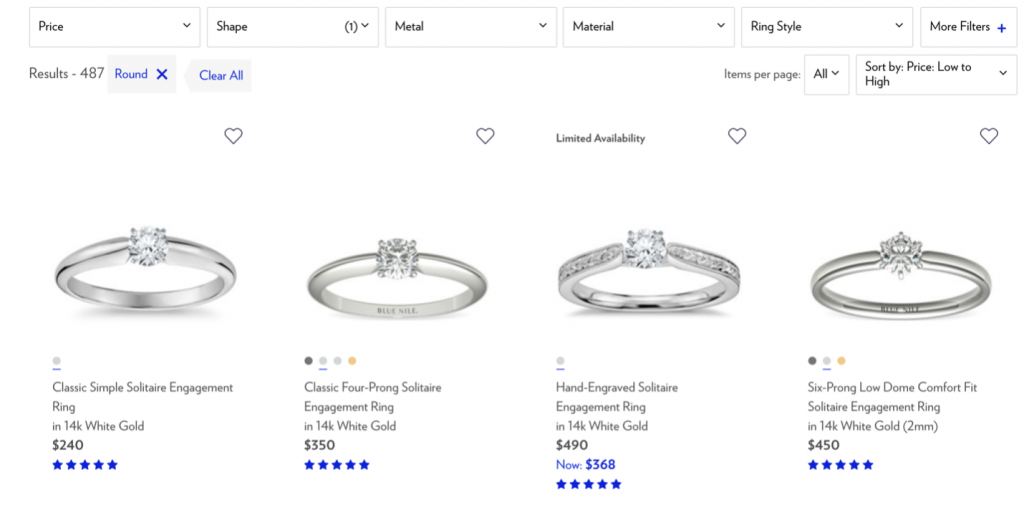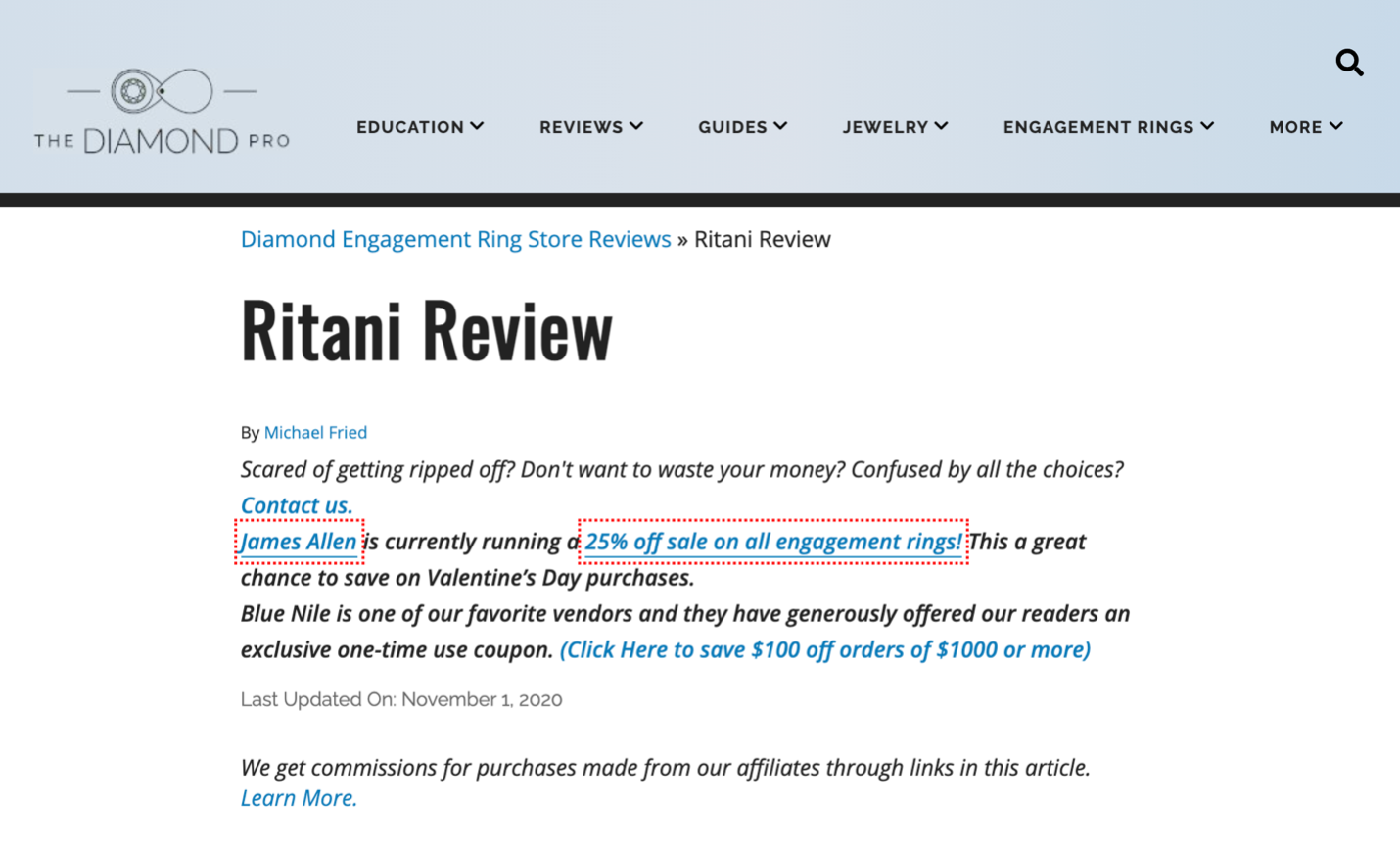Can We Really Trust Every Online Product Review?
This past year, consumers have shifted from shopping in stores to shopping online at a rate never seen before. If it wasn’t already the case, the internet has become the modern day shopping mall, however it’s difficult to window shop when we’re sitting on our couch. This leaves us with questions: “What does my boyfriend want for his birthday?” “Who makes the best air fryer?” “Where can I get the best deals on jewelry?”
To answer these, we put our trust in the advice of strangers – from ecommerce commenters to blog post listicles, this is the time of year online shoppers are reading, researching and absorbing anything the internet can tell them about the products they’re thinking of buying. Oftentimes the most trusted pieces of information come in the form of blog posts and articles, reviewing a specific company or product. They’re thorough, often written by educated authors and provide the expert recommendation shoppers are seeking out.
But can they be trusted?
Affiliate Marketing
The financial story behind the publishing industry is one that has been in constant motion since Craig Newmark first introduced the website in his namesake – craigslist.com. Pre-internet, publishers made money primarily in two ways: through subscriptions, and through advertising. For newspapers, this meant relying heavily on classified ads which drove up to 70% of the publisher’s revenue. When Craigslist provided this service for free, the money dried up. As the internet became the primary source for news consumption in the 2000’s, so too did the subscription model. People could consume news for free – there was no longer a need pay for it.
Since then, the publishing business has been in constant flux. Some use banner ads on their site to make money. Others have stuck with a subscription model. Some publishers share native ads for content on other websites, and still others sell article placements to businesses looking for publicity. While no one model is necessarily the “right” way to run a publishing business, there is a new revenue stream that has become more and more popular over the past decade.
Enter, affiliate marketing.
The way affiliate marketing works is simple:
Step one: a company has a product they want to sell. Let’s use Ritani, the online jeweler known for selling diamonds and engagement rings as an example. They want to sell these products, and they know the value of good online reviews. Like everyone in the diamond industry, they are willing to pay for publishers to talk about them.
Step two: A publisher has a website where they provide expert advice on diamonds. There are quite a few of these sites, and they are very helpful for consumers who are often buying a diamond for the first time. These publishers are an essential step in the process for diamond buyers.
Step three: The company and the publishers make a deal. Ritani understands that the diamond expert’s readers are potential customers, so they offer the publisher incentive to send the readers to their ecommerce website. Usually, these deals come in the form of commission – the publisher will get XX% of every order that originated from the publisher’s website.
In this situation, everyone wins. Ritani gets more customers, the publisher gets a new revenue stream, and the shopper receives direct access to the product they are looking for – often with an extra discount in hand.
But sometimes, business gets in the way. What happens if a publisher starts prioritizing revenue over the trust of their readers?
When affiliate marketing goes wrong
Ritani has partnerships with many publishers in the diamond world, as do many of Ritani’s competitors. One such publisher is diamonds.pro, an authority in the space. When a competitor offers diamond.pro a better commission than what Ritani is offering, the publisher then asks Ritani and all of the other diamond sellers to increase their rates – or else.
Take a look at this article that diamond.pro published after Ritani refused to increase the commission rates for this publisher. This article – which is categorized as a review of the company – opens with promotions and discounts for competitors. It goes on to mention these competitors who pay a higher commission rate 37 times, compared to Ritani 45 times. Looking at the publisher’s reviews of these same competitors, they mention the company being reviewed over 100 times, and other brands fewer than 20 times. Diamond.pro has effectively turned the review of one company into and ad for other companies, where they will make more money. Visit here: best online diamond stores teachjewelry.com
Additionally, the review itself provides information that appears to be intentionally incorrect, in order to mislead readers into buying products for which they will make a higher commission. For example, diamond.pro shares the images of engagement ring setting product listing pages for Ritani and competitor, Blue Nile, claiming “Blue Nile’s cheapest setting is 25% less expensive.”
A quick look at the two company websites makes it clear than not only is this information misleading, but it’s also wrong. In fact, the opposite appears to be true: Ritani’s cheapest setting is almost 27% less expensive than Blue Nile’s.
Ritani:
 Blue Nile:
Blue Nile:
 One could argue that these must be outdated images, and you can’t expect a publisher to update every review for every product change, but this review was actually updated in November 2020 with the outdated information left intact. The reviewer did manage to update the information for Blue Nile’s Black Friday sale on Ritani’s review, though, showing exactly where the publisher’s priority lies.
One could argue that these must be outdated images, and you can’t expect a publisher to update every review for every product change, but this review was actually updated in November 2020 with the outdated information left intact. The reviewer did manage to update the information for Blue Nile’s Black Friday sale on Ritani’s review, though, showing exactly where the publisher’s priority lies.
This is but one example of how the affiliate marketing business model might intentionally lead users astray. Other times the listicle you read about the 76 best gifts for your boyfriend in 2021 isn’t really a carefully thought-out review of 76 products, but actually just a list of 76 companies willing to pay an extra fee to be included in such a list. In some cases, publishers will charge premiums of over $20,000 for a single, positive article hyping up another company’s product.
When affiliate marketing serves everybody
This is not to say that the world of affiliate marketing is a shady place that can never be trusted. More times than not, affiliate marketing will help the consumer just as much as it helps brands and publishers. Case in point: Ten Little.
Ten little is a new brand that just entered the highly competitive children’s shoe space in February 2020. To break into such a competitive industry, going up against retail titans like Nike or Carters, you need publicity. Affiliate marketing is one of the best ways to get that publicity.
Take a look at this review from Anya’s Reviews, a blog that independently reviews shoes for Men, Women and Children. From your first scan, you can immediately notice one major difference: there are no links, or even direct mentions, of competitors. It is truly a review of the product, not in any way an ad for someone who might pay the publisher more money.
As you read through, the review is thorough – highlighting the assets of Ten Little shoes, as well as calling out things that aren’t perfect. The review is honest.
In the end, it is easy to see how this is beneficial for everybody. Ten Little get the publicity then need to break into a difficult market, Anya’s Reviews creates content on their website while earning commission from any sales that come as a result of this article, and consumers get a fair review of the product from a third party, not an ad aimed at tricking a buyer into thinking one thing or another.
As online shoppers do their search for products in 2021, it’s important to remember to take every review with a grain of salt. Is it actually an unbiased recommendation coming from an industry expert, or does the author have an incentive to lead consumers astray?
That’s what we’ll be asking ourselves this year.

